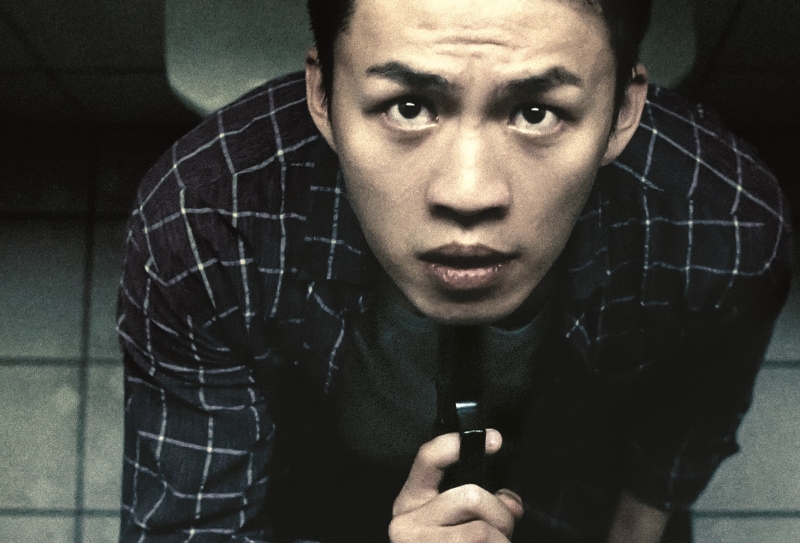|
|
||
|
Pro Tools
FILMFESTIVALS | 24/7 world wide coverageWelcome ! Enjoy the best of both worlds: Film & Festival News, exploring the best of the film festivals community. Launched in 1995, relentlessly connecting films to festivals, documenting and promoting festivals worldwide. Working on an upgrade soon. For collaboration, editorial contributions, or publicity, please send us an email here. User login |
Film In Focus: FUGITIVE PIECESFriday, September 7--------FUGITIVE PIECES, the latest film from Toronto-based filmmaker Jeremy Podeswa, had its world premiere last evening at two back-to-back gala screenings as the Opening Night attraction of the Toronto International Film Festival. Clearly a labor of love, the film is based on the award-winning international bestseller by Canadian author Anne Michaels (with the script adapted by Podeswa). The film is one of the high profile films of newly formed Maximum Films, the new distribution shingle of prolific producer Robert Lantos. When introduced on the stage of the Elgin Theater last evening by Festival co-director Noah Cowan, Lantos remarked that this is the tenth film of his that has graced the Opening Night slot in Toronto over the past 20 years......not bad.
This righteous Greek is played with great gusto by Croatian actor Rade Serbedjiza, best known for his Venice Film Festival Best Actor performance in BEFORE THE RAIN (1994). He gives a marvelously soulful performance as a man who instinctively does what is right, without hesitation or much thought, but out of a sense of innate goodness and charity. After the two escape to the idyllic island of Hydra in the Aegean Sea, the traumatized young boy begins to come out of his shell and a ray of hope for his future becomes possible. However, even that is dashed when the Nazis make their odious presence known by occupying the island and rooting out the Jewish population for transport to Auschwitz. Both the older man and his young charge are shielded by various locals, including one woman who is eventually shot to death before she is forced to give them up to the Nazi authorities. At the war's end, the grizzled older man and the young boy make their way to Toronto, where they live in the midst of a community of Holocaust survivors, all emotionally scarred by their loss and painful experiences.
While the film certainly deals with deep psychological scars, it is far from depressing. There is much good humor and a good ear for dialogue. In fact, the writer discovers in the film's final act, that his obsessive attempt to somehow keep the ghosts of his past alive (at the expense of living in the present moment) may in fact be a continuation of their own torture. When he is introduced to and eventually falls in love with an immigrant museum curator, who also has some troubled memories in her past, he begins to understand that the love he felt from his family in the past means nothing if shrouded in tragedy.....it only has relevance and endurance if he can offer it to someone else in the present moment. The film, as I assume the novel does, ends with the author writing in his diary: "I finally understood that I needed to give the thing that I most desperately needed from someone else". That is a major revelation that rings so true. Despite the strong acting, sensitive script and emotional truth, the film does sag at times and has a number of repetitive scenes. Voiceovers of diary entries arenot exactly the most stimulating visuals. If anything, the film made me curious to go back and read the original novel, which has the advantage of communicating inner thoughts without the burden of visual dexterity. However, as an addition to the canon of Holocaust dramas with a focus less on the SCHINDLER'S LIST horrors and more on the post-trauma wounds, the film has its own unique contribution to make. In many ways, despite the specificity of its time an place, the film mines universal themes in its depiction of the struggle to return to a sense of normalcy after transcending the trauma of war, loss and emotional upheaval. FUGITIVE PIECES will be distributed in Canada in the coming months and is actively being sold to buyers here in Toronto. A US deal may be announced shortly. It is certainly a film that audiences "willing to go there" will embrace and take into their hearts. Sandy Mandelberger, Toronto FF Dailies Editor 07.09.2007 | Toronto Film Festival Dailies's blog Cat. : Anne Michaels Anne Michaels Arts Canada Cinema of Canada Entertainment Entertainment Festival Films FUGITIVE PIECES Fugitive Pieces Greece Holocaust Hydra Jeremy Podeswa Jeremy Podeswa Jeremy Podeswa Jeremy PodeswaAside Maximum Films Noah Cowan Orange Prize for Fiction Poland Rade Serbedjiza Robert Lantos Robert Lantos Robert Lantos Sandy Mandelberger Stephen Dillane Stephen Dillane the Elgin Theater last evening by Festival the Toronto International Film Festival Toronto Toronto FF Dailies Venice Film Festival Virginia Woolf FILM
|
LinksThe Bulletin Board > The Bulletin Board Blog Following News Interview with EFM (Berlin) Director
Interview with IFTA Chairman (AFM)
Interview with Cannes Marche du Film Director
Filmfestivals.com dailies live coverage from > Live from India
Useful links for the indies: > Big files transfer
+ SUBSCRIBE to the weekly Newsletter Deals+ Special offers and discounts from filmfestivals.com Selected fun offers
> Bonus Casino
User imagesAbout Toronto Film Festival Dailies The Dailies from Toronto Contributing editors: Bruno Chatelin Laurie Gordon Animaze International Film Festival Le Miaff! View my profile Send me a message The EditorUser contributions |
































